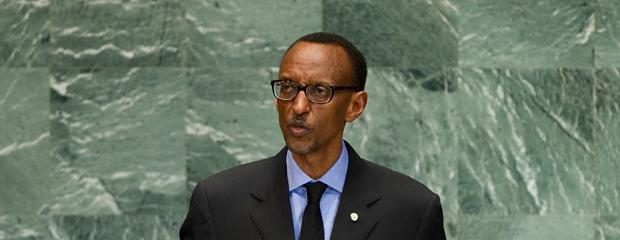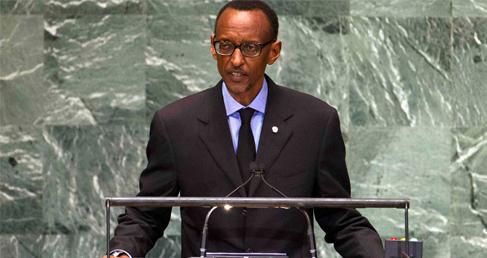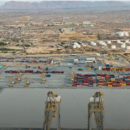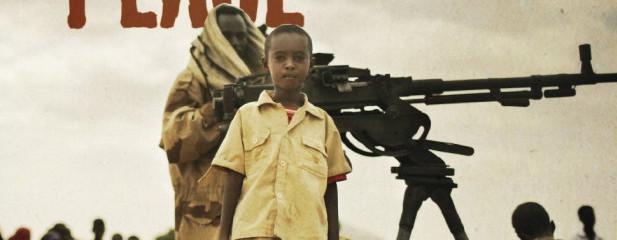Rwanda, M23 and the UNSC – By Jennifer Fierberg

The United Nations demonstrated hypocrisy in its decision to grant Rwanda a seat on its Security Council (UNSC) despite the country’s well-documented history of destabilization in the eastern region of the Democratic Republic of Congo. The UN’s actions are antithetical to the stated goals and vision of the UNSC to protect the weak and “take collective action against mass atrocities” by allowing a known aggressor country to sit in its ranks.
The UN has collected over 19 years of reports, cataloging crimes committed by Rwanda against the DRC including the UN Mapping Report. Between 1993 and 2003, the UN reported that the violations of human rights and international humanitarian law committed by Rwanda, represented “one of the most tragic chapters in the recent history of the DRC… marked by a string of major political crises, wars and multiple ethnic and regional conflicts that brought about the deaths of hundreds of thousands, if not millions, of people.” Rwanda’s active involvement with the M23 rebel group demonstrates a continued effort to bring unrest to the Congo.
With a well-known commitment to destabilization, Rwanda’s membership reflects a “flagrant conflict of interest,” according to Human Rights Watch.
The UNSC appears to have given a seat to Rwanda out of guilt and sympathy over the 1994 genocide. As a result, Rwanda is using its power to reject unflattering reports of human rights violations and to contest new accusations against it based on paranoid claims of bias against Rwanda.
Thus far, Rwanda’s most notable contribution to the UNSC is to deny any reports published against it by the Group of Experts, as well as to formally contest two new members on the Group of Experts by stating that they are “biased” against Rwanda.
In essence, Rwanda is governed by an autocratic regime run by its President, Paul Kagame, who has won two elections with over 96% of the vote each time. Theogene Rudasingwa, Kagame’s former chief of staff (now in exile in the United States), recently published a book in which he described how the outcome of the first election had to be “re-fixed” because Kagame had won by more than 100%.
How can a country that silences journalists, jails political opposition members and is run by a dictatorial regime be entrusted to monitor peace thought out the world?
The 1994 genocide was a horrific event and Rwandan government officials justifiably point to the country’s abandonment by the international community during their darkest hour. As recently as July 2013, Minister of Foreign Affairs, Louise Mushkiwabo, opened her remarks at the UNSC meeting on the situation in the DRC with such an argument. It is a signature move of Rwandan government officials to play up the “genocide guilt” in order to gain sympathy and development assistance. However, over the last two years this ploy has ceased to be so effective. Rwanda is now one quarter of the way through its two year appointment to the UNSC and the likelihood of its removal is slim, but how will Rwanda respond to the increased level of scrutiny brought by its current postion?
Many Rwandan government officials are active on social media and one in particular, Olivier Nduhungirehe, the Minister Counselor, Deputy Permanent Representative of Rwanda to the UN, is a very active Twitter community member. Yet, the majority of his tweets are either abusive to those who disagree with him, (this writer included) or are in strong support of the actions of the M23 in DRC. For a country that vehemently denies responsibility for backing the M23 why would one of its UN representatives so adamantly defend it in public?
How Rwanda acts during its time on the UNSC should be closely monitored by political analysts, journalists and scholars worldwide. We must hope that their tenure will lead to greater transparency in the policies that govern this small but powerful country, rather than drive the country to further cover up its poor human rights record (both at home and in neighboring countries.)
Jennifer Fierberg is a journalist with a particular focus on Rwanda.








This article attacks variously the UN or the UN Security Council (UNSC) for “giving” Rwanda a seat on the UN Security Council.
The seat is not a reward or a prize for the “UN” or the “UNSC” to give or withold. The UN is the sum of its members. Rwanda was elected by the General Assembly to occupy for two years one of the seats on the UNSC customarily held by the Africa regional group.
It is the first time Rwanda has occupied a seat on the UNSC since 1994. Its permanent representative then continued to sit in the Council while his government initiated and implemented the genocide it had previously planned and organised.
Well the issue of Rwanda in UN does not at all lines with what is happening in Congo. This is totally cheap reasoning.Even if Rwanda is brought out of UN which absolutely is a dream to those that lines Congo issue with Rwanda being in UN security council,Congo issue can not be there and then be solved.
Congo issue should be addressed as a priority to all participants in UN council without letting down the fundamentals causes of Rwanda having negative signals with Congo FDLR is the key point to figure out,those that continue to eye on Rwanda should not forget the decade being of FDLR in Congo and people behind them,and instead makes a slogan of Rwanda behind M23.
My question is who is behind FDLR and why should you go on eying who is behind M23 and forget to eye on who is behind FDLR that has been Rwanda security concern of not having the 1994 fate in Rwanda back again when the UN your commissioning was there by 1994.
Its a world concern debate on the issue of Congo not Rwanda being in UN,if it qualified to be there under all World technocrats or committee to prove Rwanda to have a seat in UN,then Congo issue is far a pointless to ponder disqualifying Rwanda to have a sit in UN guys.
Am much neutral to both Rwanda as a state and Congo even those that seem to be the voices of Congo against Rwanda on my point of view.
buy hydroxychloroquine chloroquine for lupus can hydroxychloroquine cause blindness